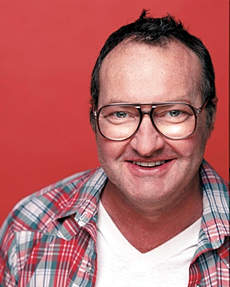I was talking to another producer in the area today about our main struggle... finding money for film. It always is dancing out in front of us like like the proverbial carrot, taunting us to do more acrobatics to convince the investor that this film is an investment that they can have some faith in. Recently, I talked to my best friend who told me that he is going to throw some money at the next project I develop, to which I gave him the same speech I give any investor. Its a risk! To which he replied that over the last 4 years he has lost 200k in real estate and another 80k in stocks, so called safe investments, so he would rather lose his money to a friend.
While this is touching, it has got me thinking that I need to do a bit more research in to the risks of real estate and mutual funds nowadays to see if I can't get some facts to point out about the relative risk all investments have. I've seen film projects with a built in audience(a positive doc about Christianity to be sold to churchgoers, etc.) a distribution deal already signed and still the production can't find the private equity to pull off the film, not because of incompetence of the production team but because of the stigma that non studio films have. "Films go over budget and don't make money back."
I hate to admit it but there are a lot of good reasons that this statement is true.
1) For the most part, out the gates, most film teams have little experience working with large budgets and honest development and preproduction. Of course a film goes over budget when you thought you could feed your crew on 5 bucks a person a day. Most film crews shoot 12-16 hour days 6 days a week and when you are a grip lifting a 300 pound dolly 10 times a day, it takes a little more than mac and cheese to keep him going.
2) Of course the odds of making a films budget back is slight if the producers had these cockamamie ideas that a film festival was going to pluck their little baby out of the THOUSANDS of films submitted and that a distributor will fly down from the heavens and give them a sack of cash. Most film schools and books tell the film auteurs about the three stages of a film project. Pre-production, principle photography, and post-production. This is crazy! Distribution is the most important phase next to actually shooting the thing! And most I have met have sadly known so little about distribution and promotion of their film. Film making may be an art form, but this is show business and if you don't show that film to as many eyeballs as possible, then you got no business.
Private Equity
Independent film can only be made by using private investors. Sure there are ways to get a little bit of cash into the kitty, like product placement for example. But the main way non studio films are made is from an investor wanting to use the tax incentives on film and having faith that they will get a good product back and their money too.
What really drives producers like me bonkers is that the big guys(The big studios) have gotten out of the game of independent film. The large studios have stopped making 10 mil films not because they don't make money. They make a lot!. Just not to their standards. They need films to make 100+ Million to make it worth their time. Personally if I made a solid film for 4 million and after all is said (theater, dvd, netflix, broadcast) and done, it makes 12 million, I am pretty happy. And a lot richer for doing what I love.
So the biggies aren't making Indies. But audiences aren't turning their back to independent films, quite the contrary, interest in Indies has built and grown for more than a decade and isn't slowing. And just because the studios aren't making them doesn't mean the theaters don't want them. They need asses in seats and popcorn munched upon.
So now Distributors are in this pickle. They need content to put in front of the audience when they are not watching Batman 6. So the Distribution Acquisition Executives are showing up in force at film festivals, desperate to get their hands on indie films that someone else took the risk of funding. Its a sellers market again at film festivals. And I hate not having anything to sell at the moment, because film investing is "too risky"












